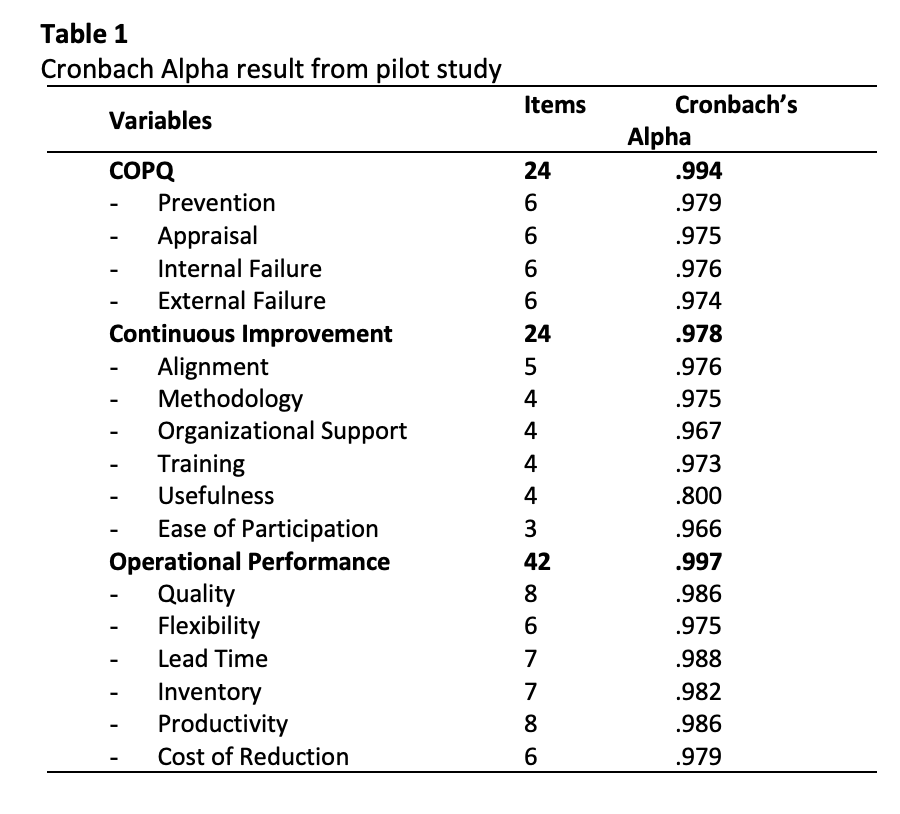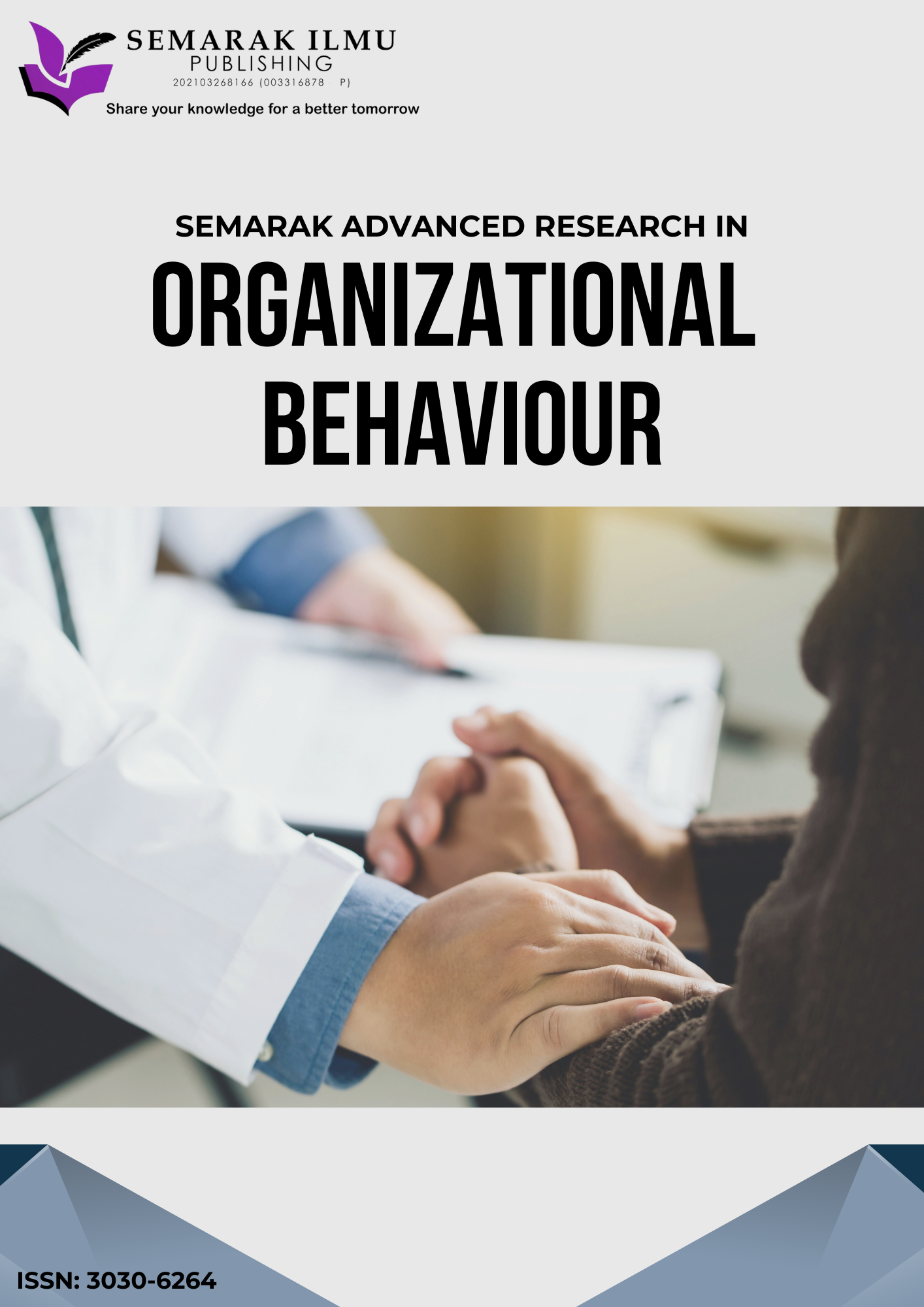Investigating the Mediating Effect of Continuous Improvement towards the Relationships between Cost of Poor Quality and Operational Performance: The Case of General Electric
DOI:
https://doi.org/10.37934/sarob.6.1.3049Keywords:
Cost of poor quality, continuous improvement, operational performance, general electricAbstract
This study investigates the complex interplay between continuous improvement (CI) practices, costs of poor quality (COPQ), and operational performance (OP) within General Electric. As organizations increasingly recognize the detrimental impact of quality-related costs on efficiency and performance, this research becomes crucial. Employing Smart PLS 4.0, the study utilized a two-step approach: measurement and structural modeling. The measurement model confirmed construct reliability and validity through rigorous tests, while the structural model revealed significant relationships among variables. The findings underscore COPQ as a critical factor influencing both CI and operational performance, with CI serving as a vital mediator. This emphasizes the necessity of a holistic approach in managing quality and operational performance, considering the interconnected nature of quality costs and improvement efforts. All research hypotheses were supported, demonstrating significant relationships between variables. This study's novelty lies in its elucidation of CI's mediating role between COPQ and operational performance. By addressing the gap in understanding interactions among quality costs, improvement processes, and performance outcomes, this research offers valuable insights for organizations aiming to enhance operational efficiency through CI strategies. The results highlight the importance of integrating COPQ considerations into CI initiatives to optimize operational performance. This research contributes to the evolving discourse on quality management and operational excellence, providing a foundation for future studies and practical applications in diverse organizational contexts.










